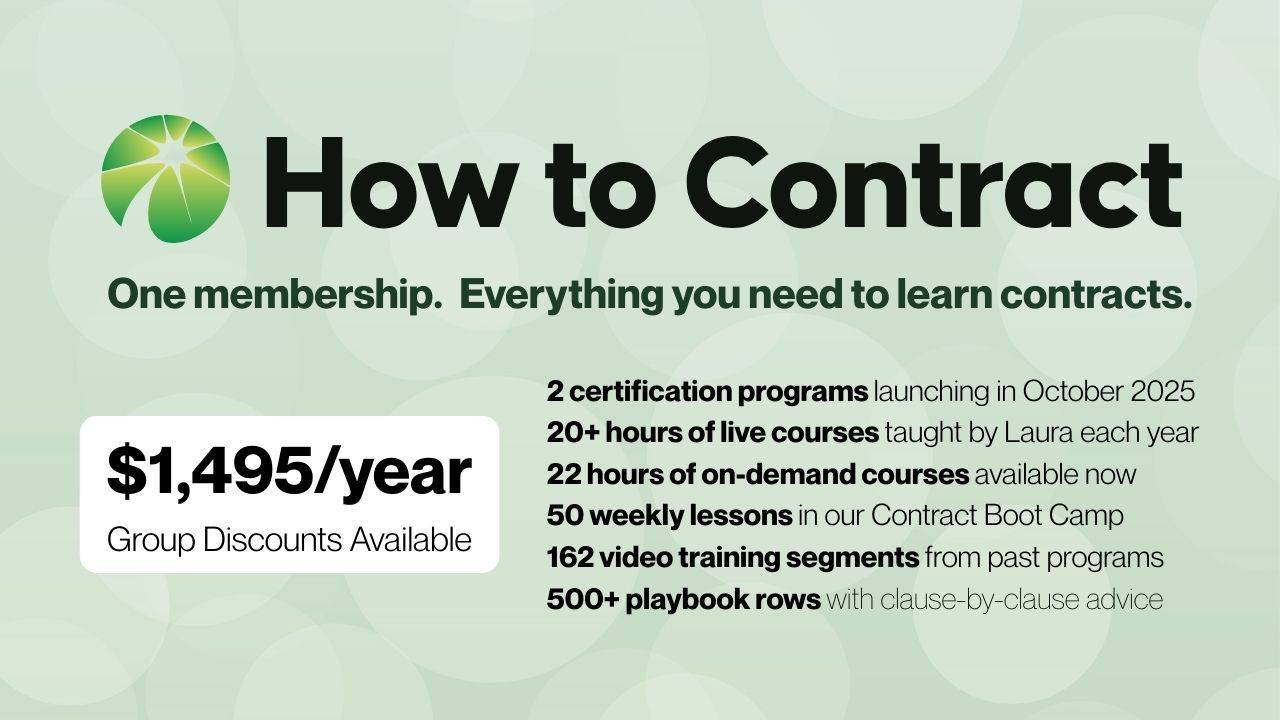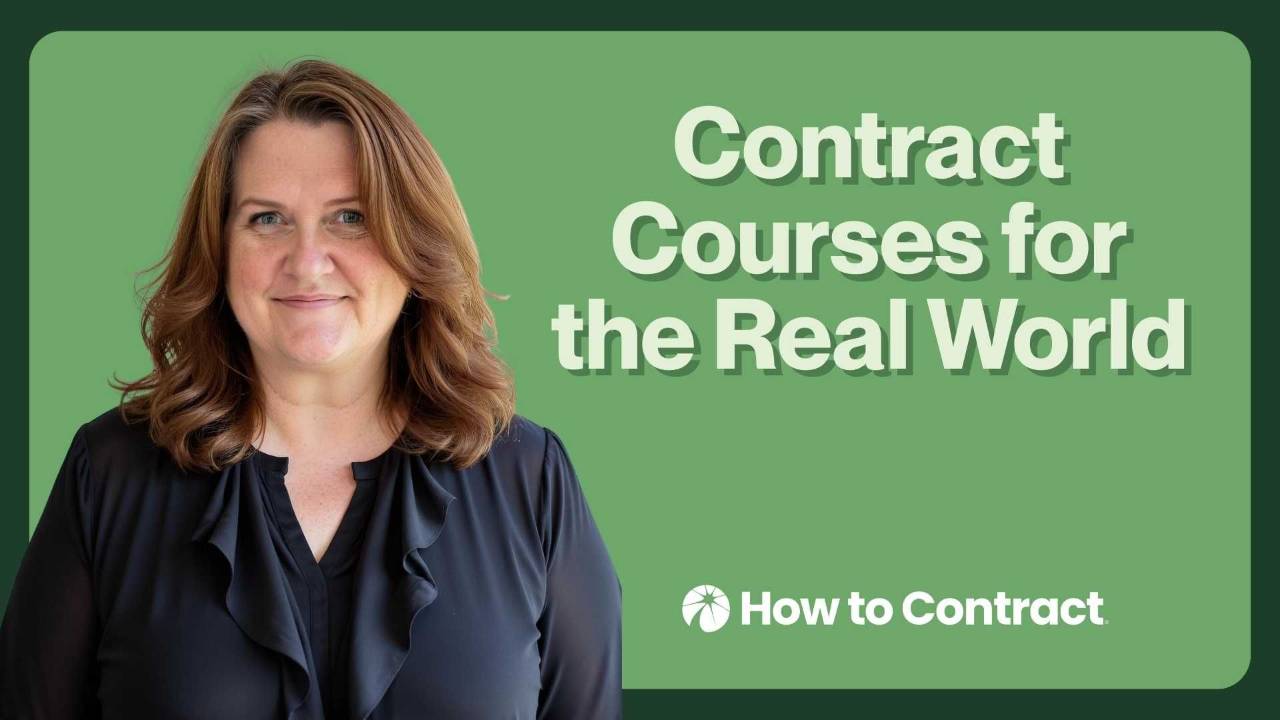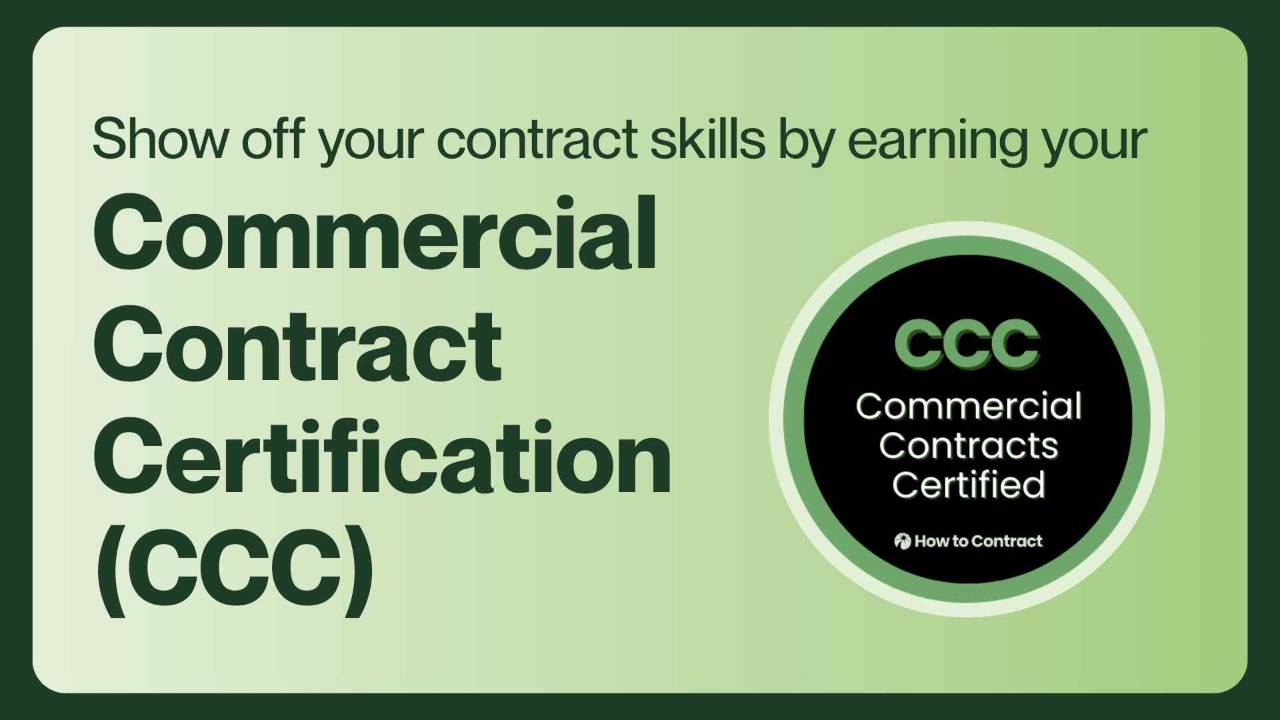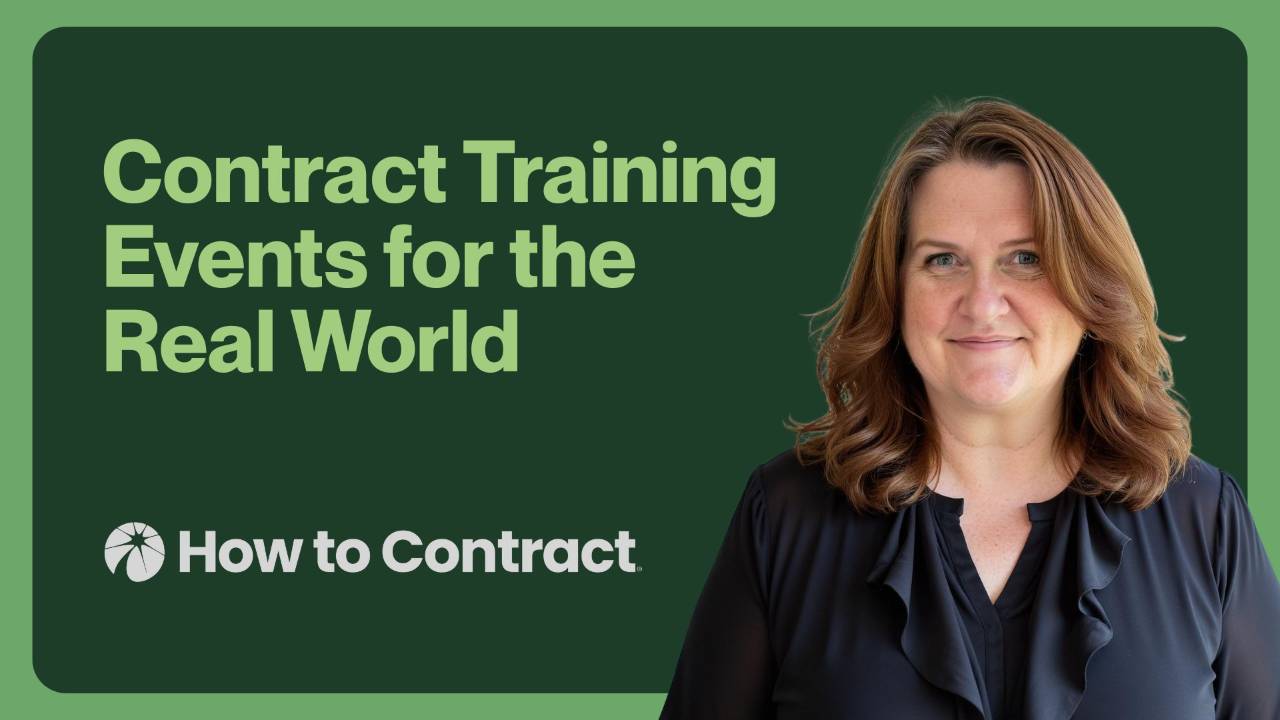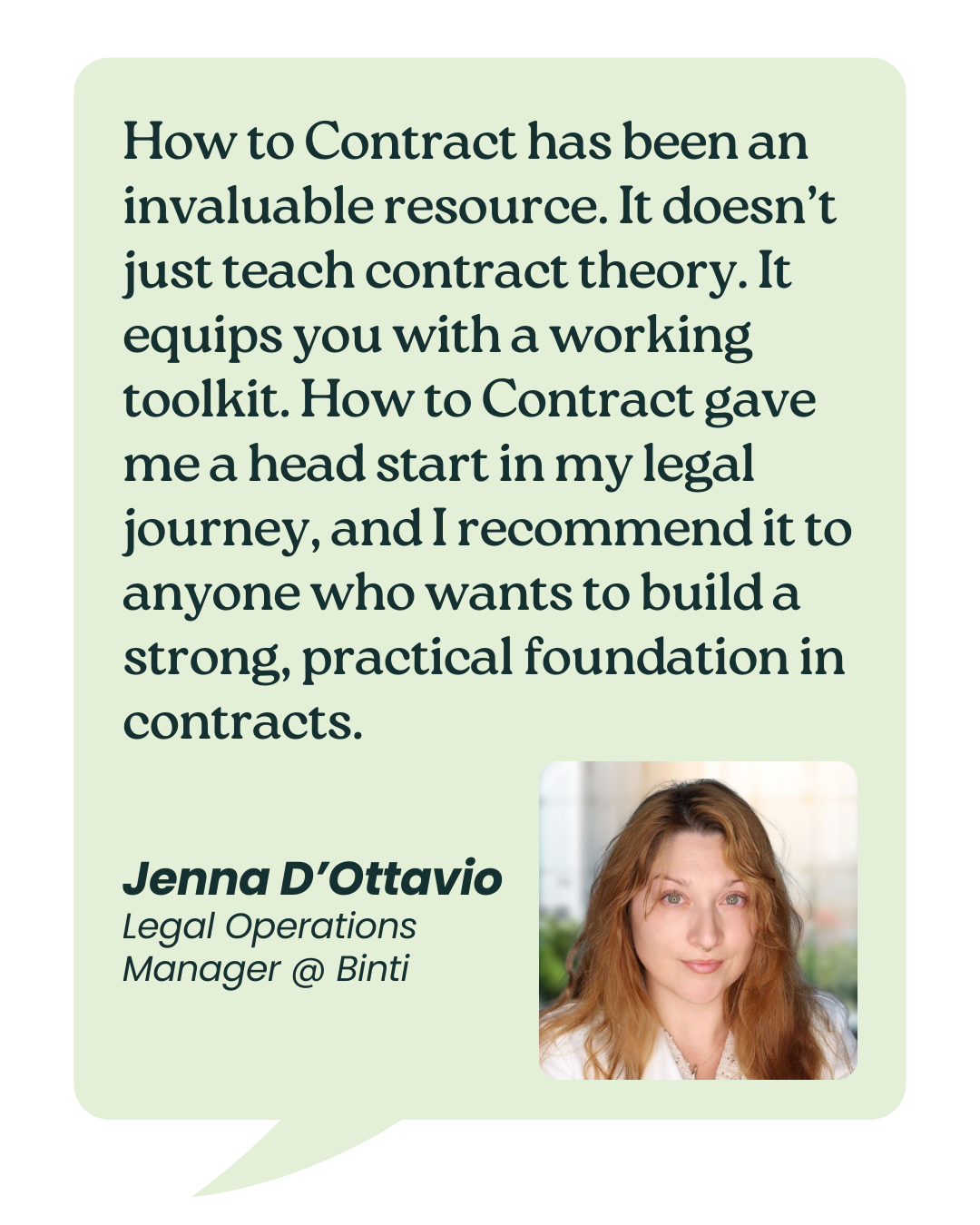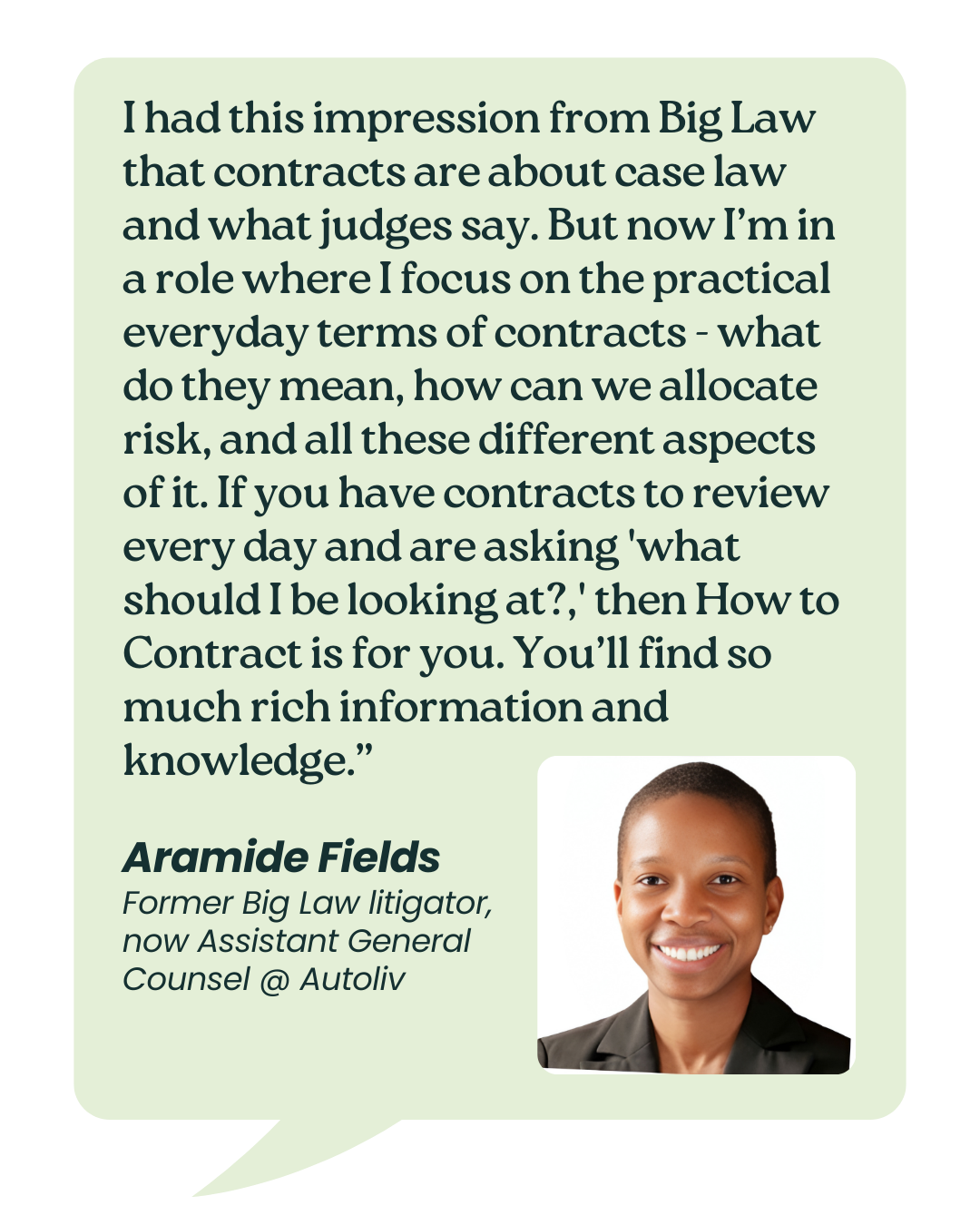
How I Contract: Brooke Achua, Contracts and Procurement Counsel @ Atria Institute
We interviewed Brooke Achua, Contracts and Procurement Counsel at Atria Institute. This interview is part of the How I Contract series, designed to offer different perspectives on what works in contracts in the real world.
You can see all the How I Contract interviews here.
My Biggest Contract Challenges and How I Overcame Them
What was your biggest challenge when you started working with contracts? If you could go back in time, but keep all the knowledge and experience you have now, how would you deal with it?
My biggest challenge when I started working with contracts later became my unique advantage, which is that I came from a litigation background, specifically business litigation and consumer protection litigation.
This meant that I initially approached contracts with a more risk-averse lens, having seen all the ways that contracts (whether B2B or B2C), when left to a court to interpret, can lead to disastrous, expensive results.
I unnecessarily over-scrutinized many drafting choices in an attempt to neutralize every potential risk. I wanted my contract language to be ironclad, which is, of course, not possible. My approach was very much, “The sky is falling.”
The reality, as I later learned with more contract drafting experience, is that the myriad of perceived risks must be tethered to the likelihood of materialization and aligned with the company’s unique risk tolerance.
Litigators get heat from transactional attorneys when we enter the contract drafting and negotiation space (and rightfully so!) because it can be frustrating to see company operations, progress, and growth needlessly hampered due to improbable risks.
My approach these days is less “chicken little” and more “wise hen.”
I’m more agile, think strategically, and prioritize understanding the business objectives. I still rely on my litigation background for those instances when a more risk-averse perspective is justified.
Learning from Contract Disasters: Real-World Examples
Do you have any contract disaster stories from your career or someone else’s career that you’ve learned from? What did you learn?
One difficult counterparty comes to mind as an example of how not to be an effective legal partner to your business or its partners.
We were negotiating non-compete language in a service agreement.
The language was restrictive, overbroad, and not tailored to the potential risks. I knew it would never be upheld by a NY court.
I explained this to the counterparty.
He agreed, promised to waive the language in exchange for stronger confidentiality and non-solicitation provisions, and said he’d get back to me after discussing it with internal stakeholders.
When I received his redlines, I was surprised to find not only did the non-compete language remain, but it was also amended to be even more restrictive, requiring a prior notice provision.
Despite previously collaborative negotiations, I was stonewalled and told the counterparty would not waive the provision (contrary to earlier representations). My company ultimately accepted the agreement, understanding that if the non-compete provision were to ever be enforced, it would be futile.
If I could instill in my younger self three takeaways from this contract disaster story, I’d say:
-
Be absolutely sure that you have the authority to make certain representations on behalf of your client/company before you make them to the counterparty. It’s perfectly okay to say, “Let me check with my team on that and get back to you.” You destroy trust with your counterparty and your company when you fail to do so.
-
Without compromising internal corporate strategy or other confidential information, if you can provide a rationale for your contract redline, do. I believe transparent communication is the foundation for drafting balanced contracts that present fewer risks in the long run. Failing to provide justification for your position forecloses the opportunity for both parties to find creative and mutually beneficial solutions.
-
Pick your battles. In agreeing to the non-compete provision, we preserved the deal, which was more important to us. Moreover, knowing the law very well helped us realize that our risk exposure was basically non-existent.
Key Lessons Learned in Contract Drafting and Negotiation
What’s your biggest lesson learned in contracts?
Don’t just take the stakeholder’s word for it.
Sometimes, a stakeholder will give you approval to take on more risk or liability with a contract.
Initially, you may think this is good news that will make your job easier and close the deal faster.
That’s not always the case. It may be the case that a stakeholder is agreeing to more risk than they are aware of.
One of the biggest lessons I’ve learned in contracts is to learn how to respectfully probe, push back, and present more context so that the stakeholder is fully informed of the risks they approve.
Practical Contract Tips for Lawyers and Professionals
If you could share just one practical, real-life contract tip, what would that be?
Take the time to understand what your leverage is.
Sometimes, it’s obvious, but other times, particularly when you feel you don’t have much leverage, it could be invisible to you because you’ve been “in it” too long to realize what’s valuable to the other side.
Get creative, brainstorm, and put yourself in your counterparty’s shoes.
Avoid Common Contract Mistakes With These Strategies
What mistakes should contract lawyers and professionals avoid when working with contracts? How would you avoid them?
Not sending substantive comments within the document itself.
It’s a pet peeve of mine when I’ve made the effort to draft thoughtful explanatory comments, and the counterparty responds with disorganized responses to some, but not all, comments.
Address the comments methodically, and if you have no comments or accept, then clear the comment bubble or indicate as much.
Leaving comments open-ended makes for inefficient negotiation cycles.
Watch Out for These Contract Drafting Pitfalls
What’s one of the easiest ways to screw up a contract?
This one I learned from Laura Frederick and the How to Contract team and I’ve never looked back: Using both numerals and written-out numbers, e.g., twelve (12).
It’s unnecessary, tedious, and you run the risk of changing one and not the other during negotiations.
Pick one and stick to it throughout your contract.
Simple Hacks for Contract Drafting and Negotiation
Are there any simple hacks our readers can use right away to improve their contract drafting and negotiation skills?
I think this depends on what stage of your contracts journey you are on.
If you are a baby contract professional, start by reading any and all contracts: terms of service and terms of use, rental leases, gym waivers, privacy policies, order forms, etc.
Basically, read the fine print that you’ve been used to skipping over all of your life.
Exposure to a variety of contract terms, contract subjects, industry terms, and standards is a good starting point.
Many companies provide these contracts on their websites.
The SEC EDGAR filings are also a great resource for publicly traded company contracts.
If you’re a bit more advanced in your contracts career, I recommend listening to podcasts, reading articles, and attending training that pick apart and analyze contracts. How To Contract is the obvious choice!
I cannot speak highly enough of how transformative ContractsCon 2023 was for me, and I can’t wait for the next one.
It’s one thing to get familiar with contract terminology, common formats, and provisions.
It’s another thing to scrutinize those terms alongside seasoned contract lawyers.
________________________________________
Want to learn more about how other experienced lawyers and professionals excel at contracts in the real world? Check out these interviews.
How to Contract's membership is designed to help you build real-world expertise with commercial contracts. Get access to our comprehensive system of live and on-demand courses, weekly lessons, detailed playbooks, and more. Join today!

